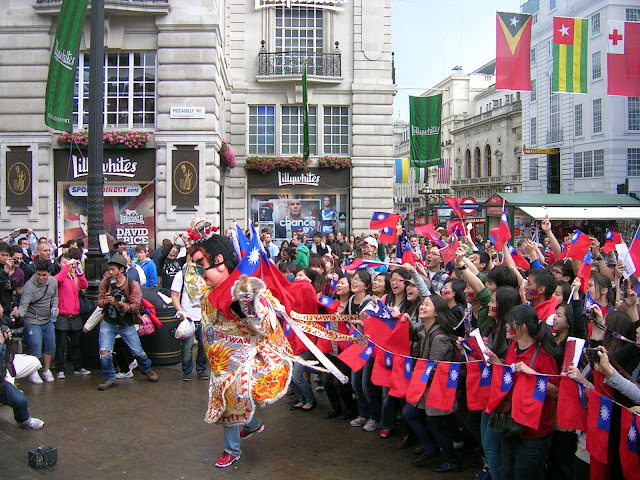Who should define sustainable city?
Preface
This article is a very brief excerpt from my master's thesis. Actually, I was going to send this piece of work to a research center based in Copenhagen in order to apply for an internship. Due to some reasons, I had to give up and therefore this article would not be able to be showed on their website. Now I would love to post it on my own blog and share with the people who also have the interests in sustainability issue as well as Stuttgart 21. This article only delivered what had been going on until this February. I would love to hear from any update and different perspectives.
Stuttgart, the capital of state Baden-Württemberg located in Southwestern Germany, is home to many automobile industries such as Mercedes and Porsche. It is not only the cluster of high technology but also one of the strongest and most prosperous commercial metropolitan areas in Germany. Now, there have been many controversies over the rail project Stuttgart 21.
Stuttgart 21 is one part of the Stuttgart-Ulm rail project and its mission is to reconstruct and transformed present station, which is a terminal station on the ground, into an underground, through station. One of the guidelines of this project is sustainable development based on the definition by the Brundtlandt Commission in 19871. With Stuttgart 21, rail will become a more attractive and convenient way of traveling / commuting, and therefore it will reshape the traffic landscape by shifting passengers from road to rail. This shift will subsequently reduce the amount of carbon dioxide emission by 70, 000 tonnes per year2. In addition, due to the tunnelization, the noise pollution will sink underground creating a quiet place for living and working3. The clout of sustainable guideline can also be achieved in the developmental planning upon the new-born land with around 100 hectares in consequence of the tunnelization4. Firstly, the history of urban expansion in expense of green land will not be repeated. Secondly, the around 20 hectares among the enlarging land – with 4,200 of new plants to be planted – will be integrated into the present park, which means the green lung of Stuttgart city will become larger5. Thirdly, future’s building upon the new land will be built based on ecological standard referring to sustainable material and non-fossil fuel6.
The opponents of this project, however, have very different views of point. For instance, as some of the local people point out, the promises of Stuttgart 21 regarding are not guaranteed since the charming figures are calculated based on the wrong information7. In addition, there are some latent risks emerging if Stuttgart 21 is going to progress. For example, the station construction will impact the layers that keep the deposit of mineral water, and thus creating a risk of leaking and drying up8. The geology is also the concern. Beneath Stuttgart city lies the porous layer of anhydrite; when being contact with water, it becomes gypsum while simultaneously swelling9. The expanding and swelling layer indicates to the possibility of damage to the station, tunnel, and everything else above. Moreover, the explicit damage could be seen in Schlossgarten, the park next to train station. Owing to Stuttgart 21, nearly 300 trees have to be felled, and this means the species – protected Juchtenkäfer (hermit beetle in English) among them – which rely on these plants are to be fallen as well10. The action of planting 4,200 new trees is not going to save Juchtenkäfer since only elder and bigger ones can serve as the niche for this insect11. Moreover, the new land is going to be riddled with buildings and grassy areas and thus leaves no room for the claimed 4,200 population. And, those will-be-absent trees will subsequently make the air condition notorious since an estimated 65,000 trees are needed for absorbing CO212.
On 27th November 2011, there was a referendum taken place aimed to settle down the dispute. The outcome was that 58% of the voters wanted it to be continued13. However, this direct democracy was not able to put off the flares in opponents’ angry minds since there were controversies over information transparency. In addition, the common ground was kept up in the air when no constructive mechanism was offered for different sides. In the end, given the democratic values, the undesired risk followed by fear is still there.
Therefore, the case of Stuttgart 21 only shows that what sustainability looks like could be different from person to person. It prompts today’s society to ruminate on how we can pay attention and respect diverse voices in order to reach sustainable city. Scientific expert and institutional policy are indeed important. However, if we could not include diverse values and knowledge, the city would lose its soul. After all, sustainable city is the place where local people are going to live, the field where local knowledge knows how to interact with the environment harmoniously and sustainably.
Notes
2 ”21 good reasons: for Stuttgart 21,” Stuttgart-Ulm rail project, http://www.das-neue-herz-europas.de/en-gb/21-good-reasons/default.aspx
3 ”21 good reasons: for Stuttgart 21,” Stuttgart-Ulm rail project, http://www.das-neue-herz-europas.de/en-gb/21-good-reasons/default.aspx
4 ”21 good reasons: for Stuttgart 21,” Stuttgart-Ulm rail project, http://www.das-neue-herz-europas.de/en-gb/21-good-reasons/default.aspx
5 ”21 good reasons: for Stuttgart 21,” Stuttgart-Ulm rail project, http://www.das-neue-herz-europas.de/en-gb/21-good-reasons/default.aspx
6 ”21 good reasons: for Stuttgart 21,” Stuttgart-Ulm rail project, http://www.das-neue-herz-europas.de/en-gb/21-good-reasons/default.aspx
7 “Service capability,” Stuttgart – a city in conflict, http://www.stop-stuttgart21.info/html/service.html
8“Ökologisch & nachhaltig,” Ja zum Kopfbahnhof: Kopfbahnhof 21, http://www.kopfbahnhof-21.de/index.php?id=307
9”mineral springs and geology,” Stuttgart – a city in conflict, http://www.stop-stuttgart21.info/html/mineral.html
10”the park "Schlossgarten" and ecological concerns,” Stuttgart – a city in conflict , http://www.stop-stuttgart21.info/html/park.html
11 ”the park "Schlossgarten" and ecological concerns,” Stuttgart – a city in conflict , http://www.stop-stuttgart21.info/html/park.html
12 ”the park "Schlossgarten" and ecological concerns,” Stuttgart – a city in conflict , http://www.stop-stuttgart21.info/html/park.html
13 “The Referendum,” Stuttgart – a city in conflict, http://www.stop-stuttgart21.info/html/referendum2.html























